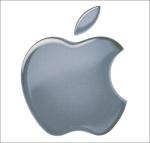 Yesterday Apple posted its first ever profit decline in more than a decade. As a “make good” (or maybe because they can’t find a better use for the cash), the Apple Board has decided to increase the dividend and begin a share buy-back program. However, the question on everyone’s mind is: what’s the problem and how does it get fixed?
Yesterday Apple posted its first ever profit decline in more than a decade. As a “make good” (or maybe because they can’t find a better use for the cash), the Apple Board has decided to increase the dividend and begin a share buy-back program. However, the question on everyone’s mind is: what’s the problem and how does it get fixed?
Analysts and pundits of all shapes and sizes are weighing in on the problem and whether Apple can come up with a blockbuster new product soon. Even if they can, what about the next one?
Who is to blame for this mess?
Some want to blame Tim Cook. Others note that when he became CEO the stock was about $300/share and today it is closer to $400, thus suggesting he is not to blame. But shareholders remember $700/share not $300.
All that notwithstanding, the fault is not with Tim Cook, it’s with the Board of Directors.
Steve Jobs did not suddenly die. He was ill for a while. The Board had ample notice that he was seriously ill, and very likely to not survive his cancer. That turned out to be true and yet the Board’s choice to replace him was, without question, the wrong guy.
Sure, you say that’s obvious now. But I said the same thing in October 2011. Not because Cook is a bad guy, but because he could not possibly sustain Apple’s innovation archetype, which it has had in place since day one. To try to change that archetype is hugely risky.
No, the Board’s only real option was to give leadership to Jonathan Ive and keep Cook as the COO. Would Cook have accepted that? I have no idea. But without a visionary leader, Apple does not innovate. Cook is not that person, and is not going to be. Is Ive? Maybe, and he was the best shot they had.
Is it over for Apple? Hardly. Is it in a downward slide? For awhile at least. Until either the Board puts a visionary leader in as CEO, or the company eventually transitions to a new archetype. Either way, it is likely to be a tough road, and we can’t blame Jobs. His death was certainly not his idea; but we can blame the Board for not taking the correct action in replacing him.
Mitch




Anyone who didn’t see Apple’s likely demise even 2 years ago must have been walking around with blinkers on. Jobs would have set development strategy for the company well before he passed away. These decisions require considerable investment and lead time. So to start blaming the person who replaced him is ridiculous, but I guess so typical in the US corporate press where some golden boy has passed on. Let’s face it Apple ran out of new idea about 2 years ago and was clearly being matched and sidelined by other brands in the sphere. In fact many would argue that Samsung has moved ahead. But even there lets face it the developments are starting to look desperate with each new model launch. There is no new, new anymore just minor add-ons with little real breakthrough benefit. The age of mobile phones has probably peaked and only something really different like wearable devices is going to keep this market lively. What Apple should have realized is that there leadership edge was disappearing even under Jobs. But, just watch how the press pounces on Cook, when a bit of logic would tell you this is, as I said, just crap.
Chris,
Thanks for your comment and where I disagree is on execution. Jobs was the visionary leader and the culture of the company was driven by the archetype. Culture trumps strategy, so without their visionary leader, things went downhill.
I would concur that Jobs’ influence and abilities likely waned well prior to his actual death, but things like the Apple Maps debacle would likely not have occurred under Jobs.
And even if they had one new product left in the pipeline (to be seen), what happens after that? It’s the role of the leader to adjust strategy to shifting markets and external influences. Whether Jobs would have been up for that is a subject of infinite debate, and not my point anyway.
I am certainly not blaming Cook, I am blaming the Board whose job is to make sure the company has an effective strategy.